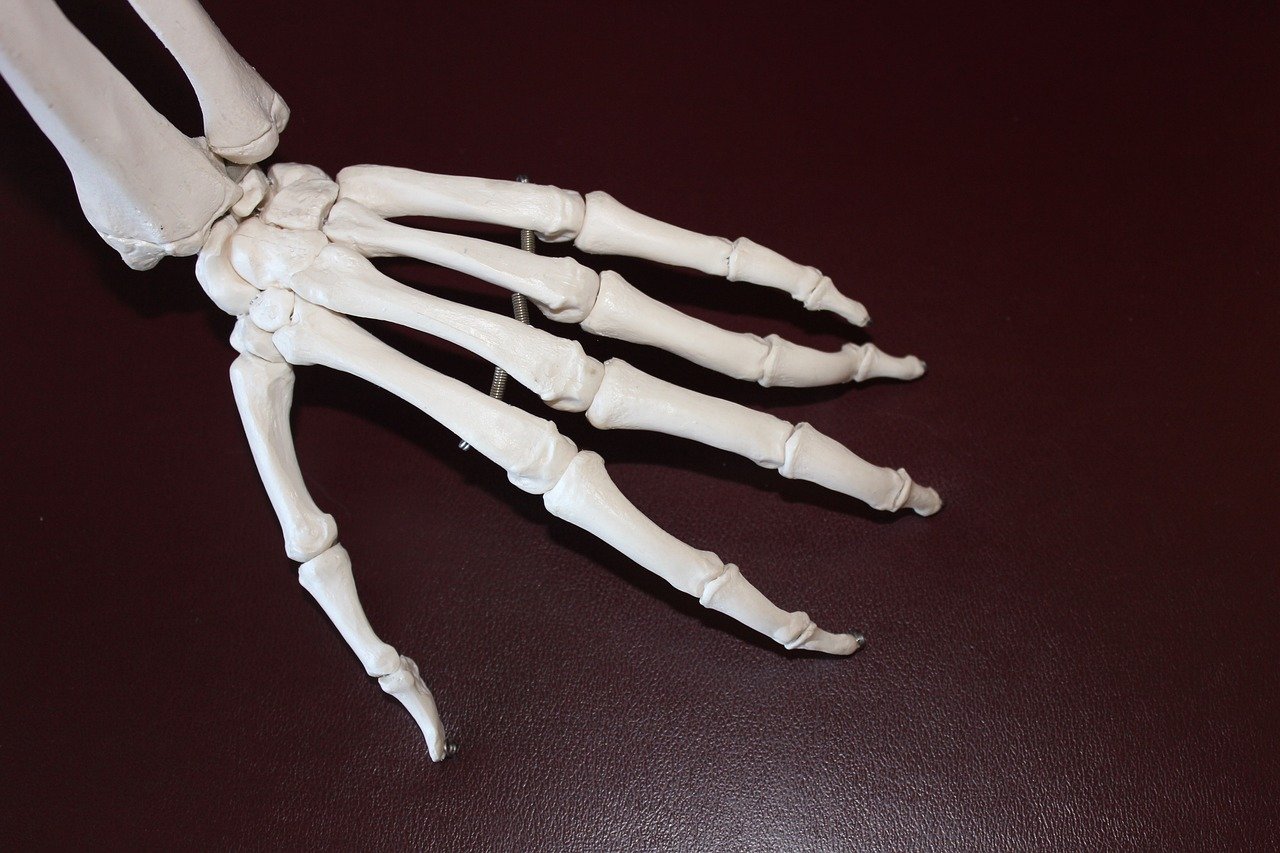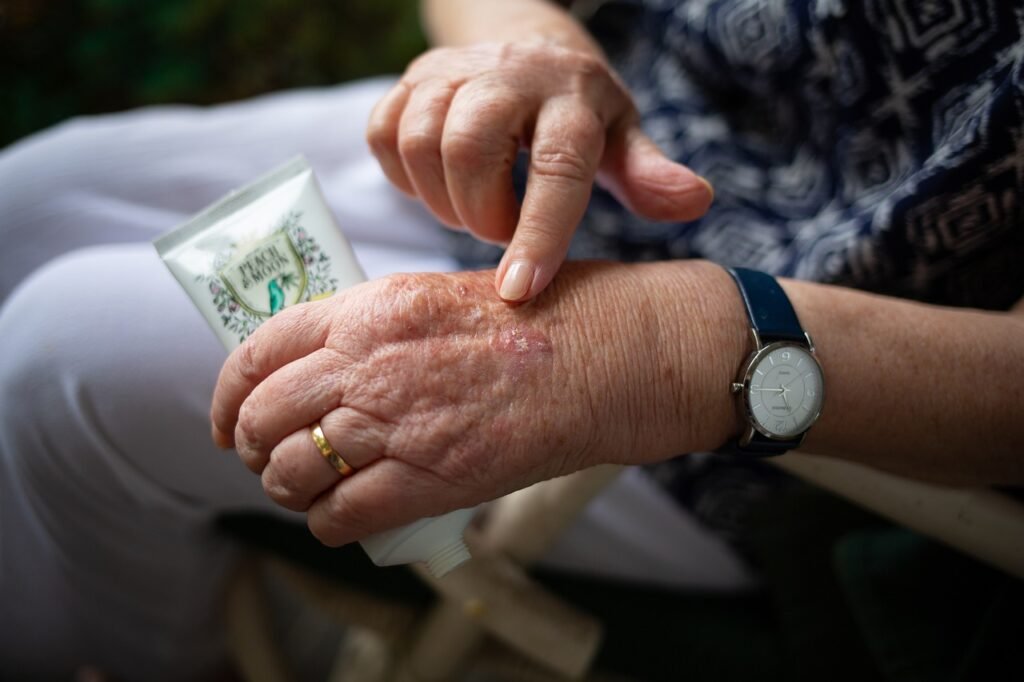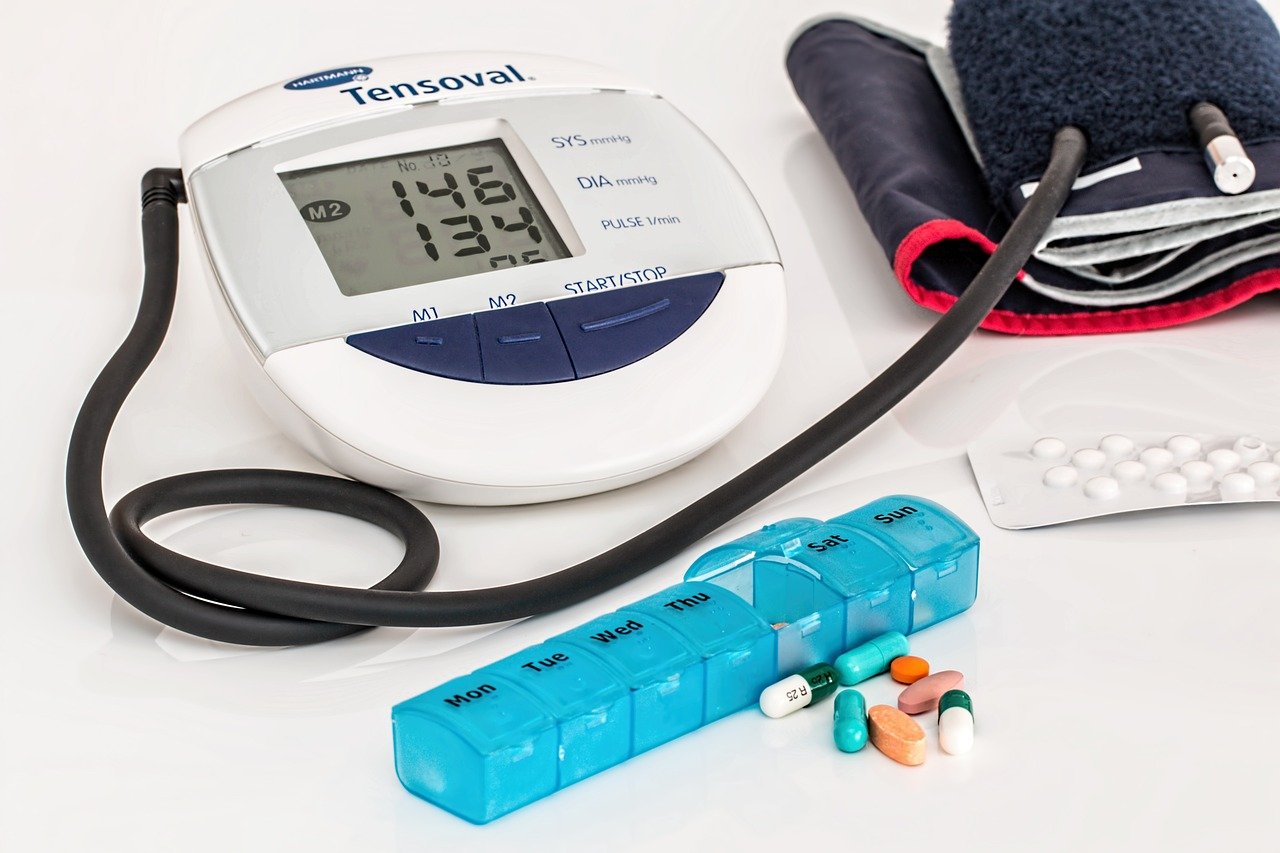Rheumatoid Arthritis (R.A): Symptoms, Treatments, and Management

Rheumatoid arthritis (RA) is a chronic inflammatory disorder that can significantly impact one’s quality of life. This autoimmune disease primarily affects the joints, but its effects can extend to other systems in the body, such as the skin, eyes, lungs, heart, and blood vessels. Here, we provide an in-depth look at the symptoms, treatments, and management strategies for rheumatoid arthritis.
Understanding Rheumatoid Arthritis
Rheumatoid arthritis develops when your immune system erroneously assaults your own body tissues. Unlike osteoarthritis, which causes wear and tear on the joints, rheumatoid arthritis affects the lining of the joints, causing severe swelling that can eventually lead to bone erosion and joint deformity. The inflammation linked with RA can also cause damage to other parts of the body.
Symptoms of Rheumatoid Arthritis
Joint Symptoms
The primary symptoms of rheumatoid arthritis revolve around the joints. Early signs of the condition include:
- Joint Pain and Tenderness: Typically affecting the small joints in your hands and feet first.
- Swollen Joints: Inflammation can cause joints to swell, feel warm, and appear red.
Systemic Symptoms
RA can also manifest in non-joint-related symptoms due to its systemic nature:
- Fatigue: Persistent tiredness and a general feeling of being unwell.
- Fever: Low-grade fever often accompanies other symptoms.
- Weight Loss: Unintended weight loss can occur as a result of inflammation.
Causes and Risk Factors
The exact cause of rheumatoid arthritis remains unknown. However, several factors may increase the risk of developing the disease:
- Genetics: A family history of RA increases your susceptibility.
- Gender: Women are more likely to develop RA than men.
- Age: RA can occur at any age but commonly begins between the ages of 40 and 60.
- Environmental Factors: Exposure to certain substances like asbestos or silica may increase risk.
- Lifestyle Factors: Smoking and obesity are significant risk factors.
Diagnosis of Rheumatoid Arthritis

Diagnosing RA involves a combination of clinical evaluation, imaging tests, and blood tests:
- Clinical Evaluation: A thorough physical exam to check for joint swelling, redness, and warmth.
- Imaging Tests: X-rays, MRI, and ultrasound to detect joint damage and inflammation.
- Blood Tests: Tests for rheumatoid factor (RF), anti-cyclic citrullinated peptide (anti-CCP) antibodies, and elevated erythrocyte sedimentation rate (ESR) or C-reactive protein (CRP) levels indicating inflammation.
Treatment Options
Treatment for rheumatoid arthritis aims to control symptoms, reduce inflammation, and prevent joint and organ damage. The main types of treatments include:
Medications
- Nonsteroidal Anti-inflammatory Drugs (NSAIDs): These help reduce pain and inflammation.
- Corticosteroids: These medications, like prednisone, help control inflammation and pain and slow joint damage.
- Disease-Modifying Antirheumatic Drugs (DMARDs): Medications like methotrexate, hydroxychloroquine, and sulfasalazine slow the progression of RA and save the joints and other tissues from permanent damage.
- Biologic Agents: These are newer DMARDs targeting specific steps in the inflammatory process. Examples include tumor necrosis factor (TNF) inhibitors like etanercept and infliximab.
Therapies
- Physical Therapy: Helps improve mobility and function. Exercises tailored to your needs can strengthen the muscles around your joints.
- Occupational Therapy: Teaches ways to protect your joints during daily activities. Techniques to ease stress on painful joints are crucial.
- Lifestyle Modifications: Regular low-impact exercise, a healthy diet, and maintaining a healthy weight are essential for managing symptoms.
Management and Living with Rheumatoid Arthritis
Effective management of rheumatoid arthritis involves a multifaceted approach:
Regular Medical Care
- Frequent Monitoring: Regular visits to a rheumatologist are essential for monitoring disease activity and treatment effectiveness.
- Adjusting Treatments: Based on disease progression and response to treatment, medications and therapies may need adjustments.
Self-Management Strategies
- Healthy Diet: A balanced diet rich in anti-inflammatory foods like fish, nuts, and fruits can help manage symptoms.
- Exercise: Regular exercise can help maintain joint flexibility. Low-impact exercises such as swimming or walking are beneficial.
- Stress Management: Techniques like meditation, yoga, and deep-breathing exercises can reduce stress and improve overall well-being.
Support Systems
- Support Groups: Connecting with others who have RA can provide emotional support and practical advice.
- Mental Health: Managing chronic pain and disability often requires addressing mental health through counseling or therapy.
Future Directions in Rheumatoid Arthritis Treatment
Research continues to advance the understanding and treatment of RA. New treatments focusing on specific components of the immune system and personalized medicine approaches are promising. These advancements aim to provide better outcomes and improved quality of life for those affected by this challenging condition.
In conclusion, rheumatoid arthritis is a complex disease that requires a comprehensive approach to diagnosis, treatment, and management. By understanding the symptoms, causes, and treatment options, individuals with RA can work with their healthcare team to effectively manage their condition and maintain a good quality of life.
Advanced Treatments for Rheumatoid Arthritis
As research progresses, several advanced treatments and approaches are being developed to improve outcomes for patients with rheumatoid arthritis. These include novel medications, advanced therapeutic techniques, and emerging technologies.
Biologic Response Modifiers
Biologic response modifiers, or biologics, are a class of medications that target specific parts of the immune system. These drugs can significantly reduce inflammation and prevent joint damage. Types of biologics include:
- TNF Inhibitors: Drugs such as adalimumab, certolizumab, and golimumab block tumor necrosis factor, a substance in the body that causes inflammation.
- Interleukin Inhibitors: Medications like tocilizumab and anakinra target interleukins, proteins that play a role in immune response.
- B-Cell Therapy: Rituximab targets B cells, a type of white blood cell involved in the immune response.
- T-Cell Activation Inhibitors: Abatacept interferes with the activation of T cells, which contribute to the inflammatory process.
Janus Kinase (JAK) Inhibitors

JAK inhibitors are a newer class of medications that interfere with the activity of Janus kinase enzymes, which play a crucial role in the inflammatory process. Examples include tofacitinib and baricitinib. These drugs can be taken orally and are effective in reducing symptoms and halting disease progression.
Stem Cell Therapy
Stem cell therapy is an emerging treatment that involves using stem cells to repair damaged tissues and reduce inflammation. Research is ongoing, but early results are promising, suggesting that stem cell therapy may offer a new avenue for treating rheumatoid arthritis in the future.
Gene Therapy
Gene therapy aims to modify or manipulate the expression of genes to treat or prevent disease. In the context of RA, gene therapy could potentially be used to correct the immune system’s malfunction. While still in the experimental stages, gene therapy holds significant promise for the future of RA treatment.
Advanced Imaging Techniques
New imaging technologies are improving the diagnosis and monitoring of rheumatoid arthritis. These include:
- Magnetic Resonance Imaging (MRI): Provides detailed images of joints and soft tissues, helping to detect early signs of RA.
- Ultrasound: Used to visualize inflammation and guide joint injections.
- Dual-Energy Computed Tomography (DECT): A newer imaging technique that can differentiate between types of tissue and detect uric acid crystals in joints.
Holistic and Complementary Therapies
In addition to conventional treatments, many patients find relief through holistic and complementary therapies. These approaches can be used alongside traditional treatments to help manage symptoms and improve overall well-being.
Acupuncture
Some studies suggest that acupuncture can help alleviate RA symptoms and improve quality of life.
Massage Therapy
Regular massage sessions may help reduce pain and stiffness associated with rheumatoid arthritis.
Dietary Supplements
Some commonly used supplements include:
- Glucosamine and Chondroitin: These supplements may support joint health and reduce symptoms in some people.
Mind-Body Practices
Mind-body practices can help manage stress, improve mental health, and reduce RA symptoms. Some effective techniques include:
- Yoga: Combines physical postures, breathing exercises, and meditation to improve flexibility, reduce stress, and enhance overall well-being.
- Tai Chi: A form of gentle martial arts that promotes balance, flexibility, and relaxation.
- Meditation: Regular meditation can reduce stress and pain perception, contributing to better management of RA symptoms.
Lifestyle and Home Remedies
Making lifestyle changes and incorporating home remedies can play a significant role in managing rheumatoid arthritis. These strategies focus on reducing inflammation, improving joint function, and enhancing overall health.
Healthy Diet

A nutritious diet can have a profound impact on managing rheumatoid arthritis. Key dietary considerations include:
- Anti-Inflammatory Foods: Incorporate foods rich in omega-3 fatty acids, antioxidants, and fiber, such as fatty fish, berries, nuts, and leafy greens.
- Avoiding Trigger Foods: Some foods may exacerbate inflammation. Common culprits include processed foods, sugary snacks, and red meat.
- Hydration: Staying well-hydrated is crucial for overall health and joint function.
Regular Exercise
- Low-Impact Aerobics: Swimming, cycling, and walking are gentle on the joints while improving cardiovascular health.
- Strength Training: Building muscle strength can support joints and reduce the risk of injury.
- Flexibility Exercises: Stretching and yoga help maintain joint flexibility and reduce stiffness.
Adequate Rest
Overexertion can worsen symptoms, so it’s vital to listen to your body and rest when needed.
Heat and Cold Therapy
Applying heat or cold to affected joints can provide symptom relief:
- Heat Therapy: Warm showers, heating pads, or warm towels can relax muscles and improve circulation.
- Cold Therapy: Ice packs or cold compresses can reduce swelling and numb the pain.
Joint Protection Techniques
Protecting your joints from further damage is critical in managing RA. Techniques include:
- Using Assistive Devices: Canes, splints, and other devices can help take the pressure off joints.
- Ergonomic Tools: Using tools designed to reduce strain on your joints during daily activities.
- Proper Body Mechanics: Learning how to use your body in ways that minimize stress on your joints.
Psychological and Emotional Support
Living with a chronic condition like RA can take an emotional toll. Addressing mental health is a crucial part of a comprehensive management plan.
Counseling and Therapy
Professional counseling or therapy can help individuals cope with the emotional challenges of living with RA. Cognitive-behavioral therapy (CBT) is particularly effective in helping manage chronic pain and the associated emotional distress.
Support Groups
Connecting with others who have rheumatoid arthritis can provide emotional support and practical advice. Stress Management
Chronic stress can exacerbate RA symptoms. Techniques for managing stress include:
- Mindfulness Meditation: Focusing on the present moment to reduce stress and anxiety.
- Deep Breathing Exercises: Simple techniques to promote relaxation and reduce tension.
- Hobbies and Leisure Activities: Engaging in enjoyable activities to take your mind off pain and stress.
Future Research and Emerging Treatments
Ongoing research continues to uncover new insights and treatments for rheumatoid arthritis. Areas of interest include:
- Microbiome Research: Exploring the role of gut bacteria in inflammation and autoimmune responses, potentially leading to new therapeutic approaches.
- Advanced Biologics: Developing next-generation biologic drugs that are more effective and have fewer side effects.
- Regenerative Medicine: Using stem cells and other regenerative techniques to repair damaged tissues and restore joint function.

In conclusion, rheumatoid arthritis is a complex and multifaceted disease that requires a comprehensive approach to treatment and management. By combining conventional medical treatments with lifestyle changes, holistic therapies, and emotional support, individuals with RA can achieve better outcomes and improve their quality of life.
The Importance of Early Intervention
Early intervention in rheumatoid arthritis can make a significant difference in the disease’s progression and the patient’s quality of life. Detecting and treating RA at an early stage can prevent severe joint damage and other complications.
Benefits of Early Diagnosis
- Preventing Joint Damage: Early treatment can slow or halt the progression of joint damage, preserving function and mobility.
- Improving Long-Term Outcomes: Patients who receive early and aggressive treatment often have better long-term outcomes, including less pain and disability.
- Reducing Healthcare Costs: Effective early treatment can reduce the need for more intensive and costly treatments later on.
Strategies for Early Detection
- Awareness and Education: Increasing awareness of RA symptoms among the public and healthcare providers can lead to earlier diagnosis.
- Regular Health Check-Ups: Routine check-ups with a primary care provider can help identify early signs of RA, especially in individuals at higher risk.
- Prompt Referral to Specialists: Primary care providers should refer patients with suspected RA to a rheumatologist promptly for further evaluation and treatment.
Personalized Treatment Plans
Rheumatoid arthritis affects each person differently, making personalized treatment plans essential. A tailored approach considers the patient’s specific symptoms, disease severity, lifestyle, and overall health.
Developing a Personalized Plan
- Comprehensive Assessment: A thorough evaluation of the patient’s medical history, symptoms, and lifestyle.
- Setting Goals: Collaboratively setting realistic and achievable goals for treatment and management.
- Regular Monitoring: Ongoing assessment and adjustment of the treatment plan based on the patient’s response and any changes in their condition.
Multidisciplinary Approach
A multidisciplinary approach to RA management involves a team of healthcare professionals working together to provide comprehensive care. This team may include:
- Rheumatologists: Specialists in diagnosing and treating arthritis and related conditions.
- Physical Therapists: Experts in movement and physical rehabilitation.
- Occupational Therapists: Professionals who help patients manage daily activities and maintain independence.
- Dietitians: Specialists in nutrition who can help design anti-inflammatory diets.
- Psychologists or Counselors: Mental health professionals who support patients in coping with the emotional aspects of chronic illness.
The Role of Patient Education
Educating patients about rheumatoid arthritis and its management is crucial for empowering them to take an active role in their care. Knowledgeable patients are better equipped to make informed decisions and adhere to their treatment plans.
Educational Resources
- Printed Materials: Brochures, booklets, and handouts that explain RA symptoms, treatments, and self-care strategies.
- Online Resources: Websites, webinars, and online courses offering up-to-date information and support.
- Support Groups: Forums and communities where patients can share experiences and advice.
Self-Management Programs
Self-management programs teach patients skills and strategies for managing their condition effectively. These programs often cover:
- Medication Management: Understanding how to take medications correctly and manage side effects.
- Pain Management: Techniques for coping with chronic pain, including physical, psychological, and alternative methods.
- Healthy Lifestyle Choices: Guidance on diet, exercise, and other lifestyle factors that can impact RA.
Research and Innovations
The field of rheumatoid arthritis treatment is continually evolving, with new research and innovations offering hope for better management and potential cures.
Clinical Trials

Clinical trials are research studies that test new treatments and approaches to care. Participation in clinical trials can provide access to cutting-edge therapies and contribute to the advancement of RA treatment.
- Eligibility and Participation: Patients interested in clinical trials should discuss their options with their healthcare provider to determine eligibility.
- Informed Consent: Before participating, patients will receive detailed information about the study, including potential risks and benefits.
Future Directions in RA Research
- Biomarkers for Early Detection: Identifying specific biomarkers that can predict RA development and response to treatment.
- Genetic Research: Understanding the genetic factors that contribute to RA to develop targeted therapies.
- New Therapeutic Targets: Discovering new pathways and molecules involved in RA to develop more effective treatments.
Conclusion
Rheumatoid arthritis is a challenging condition that requires a comprehensive and individualized approach to management. Advances in medical research, personalized treatment plans, and patient education are key to improving outcomes for those affected by RA. By staying informed and actively participating in their care, patients can achieve better symptom control and maintain a higher quality of life.
Frequently Asked Questions (FAQs) About Rheumatoid Arthritis
What is rheumatoid arthritis (RA)?
Rheumatoid arthritis (RA) causes inflammation, pain, and swelling, leading to joint damage over time.
What are the early signs of rheumatoid arthritis?
Early signs of rheumatoid arthritis include:
- Joint pain and tenderness, especially in the hands and feet.
- Swollen joints that may feel warm to the touch.
- Fever and unintended weight loss.
How is rheumatoid arthritis diagnosed?
Diagnosing RA involves:
- Clinical evaluation: A physical exam to check for joint swelling, redness, and warmth.
- Imaging tests: X-rays, MRI, and ultrasound to detect joint damage and inflammation.
What causes rheumatoid arthritis?
Risk factors include:
- Genetics: Family history of RA.
- Lifestyle factors: Smoking and obesity increase the risk.
- Environmental factors: Exposure to certain substances like asbestos or silica.
What are the treatment options for rheumatoid arthritis?
Treatment options for RA include:
- Medications: NSAIDs, corticosteroids, DMARDs, and biologics to reduce inflammation and prevent joint damage.
- Therapies: Physical and occupational therapy to improve mobility and function.
- Lifestyle modifications: Regular exercise, a healthy diet, and weight management.
- Advanced treatments: Biologic response modifiers, JAK inhibitors, stem cell therapy, and gene therapy.
Can diet and lifestyle changes help manage rheumatoid arthritis?
Yes, diet and lifestyle changes can help manage RA symptoms. Key recommendations include:
- Anti-inflammatory diet: Foods rich in omega-3 fatty acids, antioxidants, and fiber.
- Adequate rest: Balancing activity with rest and ensuring quality sleep.
Are there any complementary therapies for rheumatoid arthritis?

Complementary therapies that may help manage RA symptoms include:
- Acupuncture: Reduces pain and inflammation.
- Mind-body practices: Yoga, tai chi, and meditation for stress relief and improved well-being.
What is the importance of early intervention in rheumatoid arthritis?
Early intervention is crucial for:
- Preventing joint damage: Early treatment can slow or halt joint damage.
- Reducing healthcare costs: Effective early treatment minimizes the need for intensive treatments later.
Can rheumatoid arthritis go into remission?
Yes, with appropriate treatment, RA can go into remission, where symptoms are minimal or absent. Achieving and maintaining remission involves a combination of medications, lifestyle changes, and regular medical care.
How does rheumatoid arthritis affect mental health?
Living with RA can impact mental health, leading to conditions like depression and anxiety.
- Counseling or therapy: Professional support for coping with chronic illness.
- Support groups: Connecting with others who have RA for emotional support.
- Stress management techniques: Meditation, yoga, and engaging in enjoyable activities.
What is the future of rheumatoid arthritis treatment?
Future directions in RA treatment include:
- Microbiome research: Exploring the role of gut bacteria in inflammation and autoimmune responses.
- Advanced biologics: Developing next-generation biologic drugs with improved efficacy and fewer side effects.
- Regenerative medicine: Using stem cells and other techniques to repair damaged tissues and restore joint function.
What Types of Jobs Are Available at United Healthcare?
How to Apply for United Healthcare Jobs: Complete Guide




